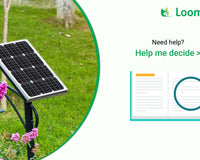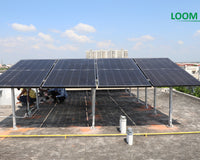Renewable Energy Certificates (RECs) function mainly as proof of purchase for renewable energies, which in other way, can be traded, sold or bartered. In some countries, they represent the environmental attributes produced by some renewable energy projects of the government and are separately sold from electricity and other commodities.
This type of certificate incentivizes carbon-neutral renewable energy by producing a production funding to electricity generated from renewable sources. It is important to recognize that the energy linked with a renewable energy certificate is sold separately for the consumer. The said certificate’s prices depend on factors, such as the number of period of time or year the renewable energy certificate was generated, facility location, whether there is a close level of supply and demand condition, whether the REC is utilized for compliance even the type of power created. They are properly accounted for the assurance of no double entry cases.

In India, Renewable Energy Certificate Registry of India "भारतीय अक्षय ऊर्जा प्रमाणपत्र पंजीकरण" is an organization who is managing all policies between solar power companies and big industries whereas consumption is very maximum, such as factories, manufacturing plants, etc.
The only process allowed is the online registration. The advocacy using a standard renewable energy certificate is to supply evidence of the production of amount of renewable energy and to provide a system which enables renewable energy deal, enabling the creation of an industrial or economic market for renewable energy and to promote the development of new renewable energy capacity. This system is strictly implemented in Europe.
An example of renewable energy that requires renewable energy certificate is electricity.
This simply means that electricity is produced after the issuance of such certificate. The said certificate is then ready for the trading phase. The certificate’s cycle ends when the consumer or supplier will consume or cancel it. This certificate is issued legally by the issuing body or the independent organization to make sure that the electricity produced comes from a renewable energy source. Another task is to have control on registrations which is usually a monopoly to avoid double issuance and to cancel it upon the owner’s request.
The main advantage of renewable energy certificates is its marketing process. Since it is market-based, it gives the people and other corporations a beneficial opportunity. Others are also permitted to buy these credits to compensate their energy-demanding activities that produce global warming gases like air travel.
The premeditated proposal of using renewable energy certificates is to lower the destruction of global warming and its sales will offset the cost of running the system of every country using it. It is a mutual marketing strategy concerned on the probable outcome of extreme industrial energy consumption. This innovation is the best discovered idea so far. In the millennium of outstanding technological upgrades, the use of renewable energy certificates is a positive potential mechanism for increasing our lifespan of existence.
The costs of electricity bills are getting very impractical. The same thing goes especially if you are also feeling the pitfalls of the economic downturn. Since it’s getting harder to tighten one’s belt, it’s always best to look for alternatives. One of the most popular energy alternatives is solar energy.
Take note that while solar energy is a promising pursuit. You have to understand that there are also downsides. Here are some of the important solar energy pros and cons that you should know.
Advantages of Solar Energy

Solar energy wouldn’t be as popular if it doesn’t have perks. Below are some that should be in your list.
#1. No Pollution
You can vouch that you wouldn’t be contributing to the overwhelming mess of the world with your solar panels. This is one of the many solar energy pros and cons that you should be aware of.
#2. Silent
People fear that noise is in the list of solar energy pros and cons. However, this would not be the case. There wouldn’t be any use of renewable energy and fossil fuels. This means that you won’t be using turbines and other noisy tools.
#3. Space friendly
Note that most solar panels are installed on the rooftop so as not to eat space. There are also remote areas that you can choose to put your panels.
#4. Efficient
Solar energy is very reliable. Also, almost more than half part of the world is compatible to solar panel installations, you just need to know hot clean them, a tutorial here, that’s it.
Disadvantages of Solar Energy

Part of the reason why people should know solar energy pros and cons is to ensure that they can compromise with the limitations. Here are some of them.
#1. Relatively Big Upfront
Prices of solar cells can go as high as $1000, especially for countries as Australia. A bigger household might require more solar cells to compensate energy needs. It’s best that you get an estimate from a professional so you’ll know how much it will cost you. The good thing is that the initial costs would be worth it as you can save bigger once the solar panels are running.
#2. Daylight Hours Limitation
It is not advisable to choose solar energy as an alternative if you live in a place where there is limited daylight. By the time darkness strikes, your solar cells should have generated enough energy for you to get by during the night.
#3. Not City-Friendly
If you’re living in a polluted city, you can’t probably rely on energy. The thick smog would just be a hindrance to the sunlight. You might not be able to get enough to keep your appliances working. Check to see if the level of pollution in your area can still encourage the use of solar energy.
Conclusion
Think about each solar energy pros and cons so you’ll know what your next move should be. Remember that you can arrive at a deal even if there are advantages and disadvantages. Just make sure that you assess your situation so as not to blur your justification. Decide only when you’ve understand everything.












